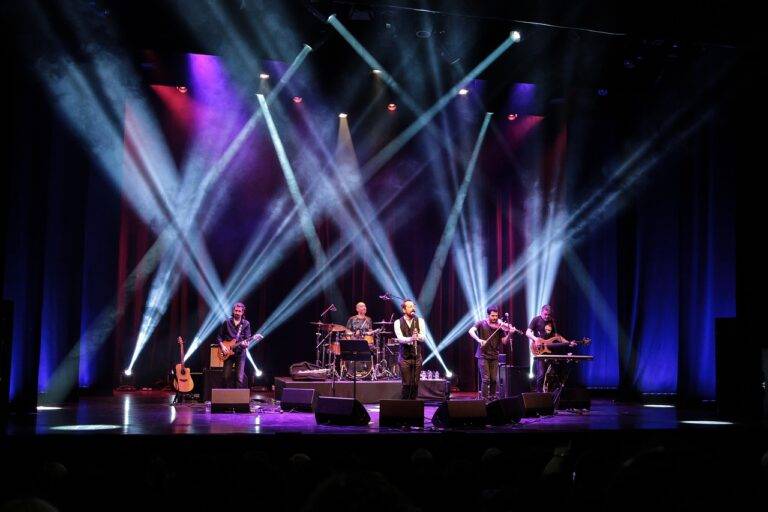The Influence of Cyberpunk Literature on Film Soundtracks
Cyberpunk emerged as a literary genre in the early 1980s, blending elements of science fiction with postmodern aesthetics. Rooted in the pessimism and anxieties of the late 20th century, cyberpunk literature reflected a world dominated by advanced technology and corporate control. Authors like William Gibson with his groundbreaking novel “Neuromancer” played a pivotal role in defining the genre, introducing readers to dystopian worlds where hackers and cyborgs navigated through virtual realities and urban decay.
The term “cyberpunk” itself was coined from the fusion of “cybernetics” and “punk,” encapsulating the genre’s focus on technology, rebellion, and anti-authoritarianism. Drawing inspiration from noir fiction, Japanese culture, and the punk movement, cyberpunk writers envisioned futures where society was shaped by the rapid advancements in artificial intelligence, cybernetics, and information technology. This fusion of high-tech and low-life elements created a distinct aesthetic that continues to influence popular culture across various mediums.
Cyberpunk emerged in the early 1980s, blending science fiction with postmodern aesthetics
Authors like William Gibson played a pivotal role in defining the genre with “Neuromancer”
The term “cyberpunk” comes from combining “cybernetics” and “punk”
Cyberpunk literature reflects a world dominated by advanced technology and corporate control
Inspired by noir fiction, Japanese culture, and the punk movement
Envisioned futures shaped by advancements in artificial intelligence, cybernetics, and information technology
Key Themes in Cyberpunk Literature
The exploration of technology and its impact on society is a central theme in cyberpunk literature. Authors often depict futuristic worlds where advanced technology has both empowered and oppressed individuals. Themes of artificial intelligence, cybernetic enhancements, virtual reality, and surveillance are commonly woven into the narrative fabric of cyberpunk stories. These themes allow readers to reflect on the potentially dystopian consequences of unchecked technological advancement and the blurred boundaries between humanity and machines.
Another recurring theme in cyberpunk literature is the concept of corporate control and the dominance of mega-corporations in shaping the future. These stories frequently portray a world where corporations hold more power than governments, exploiting resources and manipulating society for their own gains. Through these themes, cyberpunk literature critiques the increasing influence of corporate interests over individual freedoms and highlights the growing disparity between the wealthy elite and the marginalized underclass in a hyper-capitalist world.
Characteristics of Cyberpunk Soundtracks
Cyberpunk soundtracks are a vital component of the genre, playing an integral role in setting the tone and atmosphere of dystopian worlds depicted in cyberpunk literature and films. These soundtracks often feature a fusion of electronic and industrial music, creating a gritty and futuristic soundscape that complements the narrative. Characterized by pulsating beats, synthesizers, and distorted vocals, cyberpunk soundtracks evoke a sense of technological unease and urban decay.
The use of unconventional instruments and experimental sounds is another hallmark of cyberpunk soundtracks, adding a sense of unpredictability and chaos to the music. Distorted guitars, eerie ambient sounds, and heavy bass lines are commonly used to enhance the dark and gritty aesthetic of cyberpunk worlds. The dynamic nature of cyberpunk soundtracks reflects the tension and complexity of the genre, immersing the audience in a sonic landscape that mirrors the dystopian societies portrayed in cyberpunk literature.
What is cyberpunk literature?
Cyberpunk literature is a subgenre of science fiction that emerged in the 1980s and often focuses on a dystopian future where advanced technology coexists with a decaying society.
What are some key themes in cyberpunk literature?
Some key themes in cyberpunk literature include anti-authoritarianism, the fusion of man and machine, corporate power and greed, and the impact of technology on society.
What are some characteristics of cyberpunk soundtracks?
Characteristics of cyberpunk soundtracks often include electronic or industrial music, futuristic sounds and synthesizers, gritty and dark tones, and a sense of rebellion or defiance.
How do cyberpunk soundtracks contribute to the overall atmosphere of cyberpunk works?
Cyberpunk soundtracks play a crucial role in setting the tone and enhancing the mood of cyberpunk works by creating a sense of immersion in the futuristic and dystopian worlds depicted in these stories.
Are there any iconic cyberpunk soundtracks that are widely recognized?
Yes, there are several iconic cyberpunk soundtracks that are widely recognized, such as the soundtrack for the film “Blade Runner” composed by Vangelis, and the soundtrack for the video game “Deus Ex” composed by Alexander Brandon and Michiel van den Bos.






